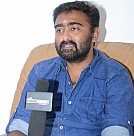PHOTOS & STILLS - GALLERY

THE MAN & THE MAKER (PART 1)
“While other creators make a big show of their art Mani Sir makes it look as though anyone can do what he does.” – A.R.Rahman
On June 2nd Tamil cinema’s pride & joy Mani Ratnam celebrated his birthday. There are a million things a cinephile could say about the man in his honor. His numerous awards & achievements, education, family and staggering number of film festival invitations & tributes his films have received are all common knowledge to his fans. Like any admirer who is keen to connect with their idol I always familiarized myself with everything Mani-related, as though learning about him would be akin to knowing him personally. So when ‘Conversations with Mani Ratnam’ by Baradwaj Rangan was released earlier this year all other work was put on hold so that I could imagine myself sitting down with India’s most prolific director to pick his brain about his 20-year film career.
Rangan has done a phenomenal job at gently opening up our beloved, but generally reclusive, genius. By discussing each of his directorial ventures from his first feature Pallavi Anupallavi all the way to 2010’s Raavanan we are given an in-depth look at the thought-process & sometimes serendipitous creation of the greatest Indian films of all time. But, as much as this book quenched my curiosity for behind-the-scenes info, it also significantly increased my admiration for Mani Ratnam as a person, and not just a director.
“I don’t see any of my films after they are released…I only see the flaws in [them]” – Mani Ratnam
As they discuss the specifics of his work it becomes apparent that Ratnam’s quiet nature is not the result of pride or an unwillingness to share his secrets – but simply his overwhelming humility. As he admits to never really watching his films after they are released (unless forced to) we are shocked to meet an unassuming man whose own works have inspired countless others. From the start of the book itself Ratnam is forthcoming with how lucky he was to receive opportunities early on, and doesn’t shy away from praising people he appreciates – from big name producers, to filmmakers he was inspired by, like Balu Mahendra, to his tried & true teammates like Ilayaraja, Thotta Tharani, Santosh Sivan & Rajiv Menon. However, the biggest example of his modest nature comes via his unabashed admiration of Padmashri Kamal Haasan from their collaboration on the internationally acclaimed Nayagan. Ratnam proudly shares candid stories of how Haasan developed Velu’s authentic makeup & improvised many of the film’s most symbolic moments. His partnership with the actor he describes as “delivering more than you can imagine” was a turning point in Tamil cinema, and his acknowledgement of Haasan’s contribution to Nayagan is a clear example of Ratnam’s team spirit.
“There is no one who is indispensable in this entire field. And it helps you if different inputs come in, a breath of fresh air comes in, different values come in.” – Mani Ratnam
His simple temperament, combined with intelligence & vision, enables him to be the formidable leader that people clamber to work with. Unlike many other filmmakers who tend to stick to those they have tasted success with before, Ratnam has always been willing to give new talent a break. Ratnam has introduced us to some of the greatest stars in Tamil cinema, including Saranya, Arvind Swamy, Madhavan & Aishwarya Rai. And, of course, it is frightening to realize that without Ratnam we may have lived without experiencing A.R.Rahman’s musical genius. Similarly, Ratnam has given numerous chances to new crew, welcoming youth & fresh talent often. As a manager who “doesn’t like to spoon-feed” his screenwriters or crew, Ratnam brought new meaning to creative association in Tamil filmdom & opened the doors for many other brilliant professionals, metaphorically returning the favors he was given.
“I have tried my best not to get classified into a ‘kind of director’” – Mani Ratnam
This cooperative work ethic & leadership technique could be derived from his progressive management education, but his ability to embrace new things & people is what has enabled him to be such a groundbreaking director. Over the years he has never shied away from pushing the envelope and trying new methods of storytelling, creating a wave of new cinema in the process. In this way, I suppose it is wrong for me to distinguish revelations from Rangan’s book as either applicable to Mani the man versus the filmmaker. His personal qualities of humility, collaboration and innovation are what made his body of work possible, right? I guess I just can’t figure out which version of Ratnam I’m fascinated with more…
To be continued.
Behindwoods is not responsible for the views of columnists.
FACEBOOK COMMENTS
OTHER LATEST COLUMNS
DILANI RABINDRAN'S OTHER COLUMNS
- The Rahmaniac Syllabus
- Do you know who Rajinikanth is?
- Ajith - Making Bad look so Good
- Raja Rani and the Cinematic Couples Therapy
- Behindwoods at TIFF - Days 8 -11
- Behindwoods at TIFF – Days 5 to 7
- Behindwoods at TIFF – Days 1 – 4
- Will he or won't he - Vijay and the guessing game
- "A Gun & A Ring" and a Director to Watch For
- Thala - Using his status to lead !
- Rapid Fire with Vidyu Raman
- "Funny Girl" – An Interview with Vidyu Raman
- The Man + The Maker Part 2
- "Festivals of Film &Globalization"
- "Using Film for Societal Change"
- 15 Years of Jeans
- "How the South Shapes Bollywood"
- "A Marriage of Film and TV"
- Women in Real and Reel Life
- Hitting the Jackpot Twice
- VISHWAROOPAM: A Lesson in Crisis Communications
- "Education Through the Silver Screen"
- From Maddy to Gautham - The Valentine's Day Spread
- Vishwaroopam: A first hand account from across Atlantic!
RELATED LINKS
- Renegades of Change: A sound vision for Tamil film music
- The very best of Tamil cinema, 2013 - A comprehensive analysis
- Conversations with Mani Ratnam - Baradwaj Rangan
- Cuckoo Movie First Look Launch by Kamal Haasan
- Kamal speaks about Balu Mahendra's Thalaimuraigal
- Top Albums and Songs 2013 - Return of Rahman and Rise of Imman
- Endrendrum KS Ravikumar
- Raja Rani 100th day celebrations
- The Rahmaniac Syllabus
- Making of Vishwaroopam 2
- Kamal Haasan credits Sasikumar
- New Year greetings from your favourite Stars
- Kamal thanks for vishwaroopam support
- Chennai International Film Fes... I II
- Naan Thaan Bala Audio and Trailer Launch











